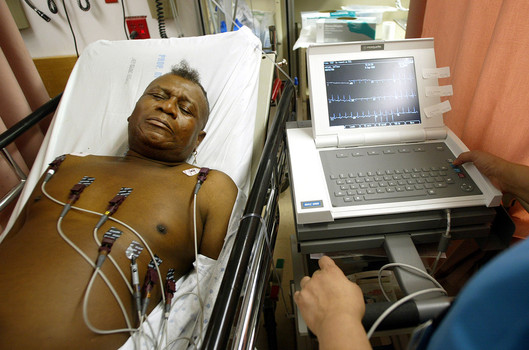Sudden heart arrests, in which the heart abruptly stops beating may not be as sudden as most people thing, but rather the result of people choosing to ignore warning signs that may occur within hours, days or even weeks ahead of time. In fact, a study of middle-aged cardiac arrest victims in Portland, Oregon, found that many of the victims had experienced warning signs such as feelings of pressure, squeezing, fullness or pain in the chest area and shortness of breath and chest pain a month or so before their hearts gave out. In fact, only a fraction of the patients reported that they had considered these signs serious enough to call 911 before they collapsed. These, however, were considered the most likely to survive.
“This should be a major reminder for people not to ignore possible signs of heart trouble, stated Dr. Clifford Callaway at the University of Pittsburgh. Callaway, a specialist in emergency medicine is also chair of the American Heart Association’s emergency care committee.
“Anyone experiencing the warning signs, especially in the middle of the night, should go to the ER at once and get checked out. We strongly recommend you don’t try to ride it out at home,” he told the Associated Press.
It is also important to know that not all heart attacks begin with the sudden, crushing chest pain that often is shown on screen, and that not only can symptoms be different fro men and women, but they can vary from person to person. In one study, for example, 1/3 of the patients who had heart attacks had no chest pain. These patients were more likely to be older, female, or diabetic. Women are also more likely to have shortness of breath, nausea and vomiting, unusual tiredness (sometimes for days), and pain in the back, shoulders, and jaw. Heart attacks can start slowly and cause only mild pain or discomfort. Symptoms can be mild or more intense and sudden. Symptoms may also come and go over several hours.








